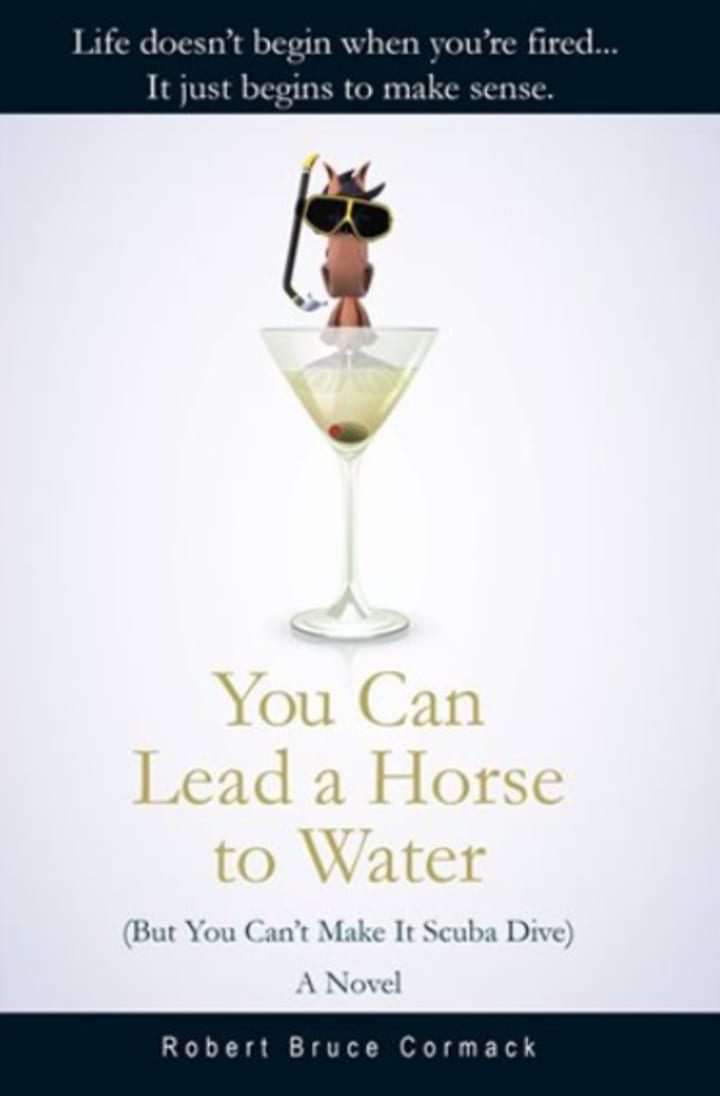Is Reading For Chumps?
Why we prefer the security of noise.

"Everybody’s talking at once in a hypnotic, hyper din: the cocktail party from hell.” Maureen Dowd
“Reading is 4 chumps, brotha,” Mew16 wrote on Reddit, an opinion shared by many commenting—and not just brothas. As one woman explained, “Maybe it was being forced to read for 12 years, and the whole thing associated with shitty teachers and shitty people and shitty memories.”
Whether “shitty” memories can account for not reading, or the content of books themselves, certainly there’s a turn-off rate. Even institutions of higher learning show a staggering lack of interest in reading, with 42 percent of graduates never picking up another book after college.
A number of people in the discussion group blamed “fillers,” the often lazy descriptions found in books. One example posted was: “The ground was moist with a little bit of water still on the grass.” Perhaps a more exact word like “dew” might have helped, or the fact that moisture is water.
A recent study showed that 57 percent of new books are never finished. That’s a lot of bored people.
“I wish people would just tell the fucking story,” someone else wrote, “I’ll make the atmosphere in my head.” That’s all well and good if the person can work out the scene in their heads. Where it gets tricky is when focusing is considered too time consuming or just plain boring.
Boredom seems to strike a majority of people with at least the intention of reading. A recent study showed that 57 percent of new books are never finished. That’s a lot of bored people.
“Eh, I’m a visual person,” another man added, “and reading really doesn’t do anything for me. Aside from stuff on Reddit or the Interwebz, you won’t catch me picking up a book, magazine, or newspaper like ever.”
As much as we’d like to think we’re visualists, it’s a bit of a cop-out. Turning to the television, or movies — or Reddit — isn’t so much an alternative to books as an alternative to thinking. Just as we watch the tube to turn off our brains (so much going on, brotha), we also find books lack the noise of security.
To say we’ve shortened our attention spans with television, movies and Netflix is like saying comic books spoiled us for reading. It didn’t spoil us.
Exchanging comments on Reddit may be words, but there’s a sound attached to the commentary — even if it’s our own voice shouting at our laptops. Being vocal lets off steam, and discussion groups prove we can type faster than we think logical or illogical thoughts.
It’s like shouting at baseball games on TV. We don’t care if José Bautista or Don Mattingly hears us. It would be nice if they did, but who wants to get up? We can’t even be bothered picking the pizza up off the rug.
To say we’ve shortened our attention spans with television, movies, and Netflix is like saying comic books spoiled us for reading. They didn’t spoil us. We saw thought balloons. They summarized the plot; they moved things along.
When Tim Burton’s “Batman” came out, we heard a superhero for the first time. Michael Keaton sounded like a superhero. It’s a shame Halle Berry didn’t sound like Catwoman. Schwarzenegger sounded more like Catwoman than she did.
Skype and FaceTime were heaven sent. We could see and talk to people miles away. Not only that, we could do naughty things, until we realized any hacker could pick up our Skype sex, releasing it later on YouTube as a manifest to long distance masturbation.
“Never get a mime to talk,” Marcel Marceau once said. “He won’t stop.” That pretty much summarizes us. Every minute of the day, we worry about being bottled up, ready to release in one long expletive fart.
Isn’t it better to keep verbalizing? Isn’t it healthy? We don’t even mind talking to ourselves, since as Franklin P. Jones explained, “At least you know someone’s listening.”
Maybe that’s why we hate reading so much. Dead air scares us. Silence suggests a downed line, a computer glitch.
When we post pictures on Snapchat, it’s not so much about memories as talking. It’s how we create conversation, hopefully the good kind like “You still look as gorgeous as ever,” or, “Isn’t that my cardigan?”
Compliments fill Facebook every day. Just changing your profile picture initiates a discussion about the most important thing in your life — you.
Talking, in any form online, is inevitably about you.
Maybe that’s why we hate reading so much. Dead air scares us. Silence suggests a downed line, a computer glitch. Saying we’re visualists, or adrenaline junkies, or simply bored is the true hallmark of an oralist.
Oralists make up the majority of the population. Eighty percent of U.S. families, approx. 320 million people, didn’t buy or read a book last year.
That leaves a lot of time for chatting, texting, posting, and checking to see if you’re on YouTube under: “Idiots Who Thought Skype Sex Was Between Two Consulting Adults.” On a strictly discussion basis, it’s still a conversation starter. You could get a million hits, with at least one person saying, “The same thing happened to me at The Meridian, dude.”
“When I’m 80 years old, I still want people talking about my wedding,” Jennifer Hudson admitted, and anything’s possible in this digital age. We can set time clocks to release wedding videos fifty years from now. It could be fun, unless you’ve been married three times since, then… not so much.
Our presidents, our senates, our whole congressional framework is based on what looks good, sounds good and ultimately gets shot down by others with different numbers.
“Everybody is continuously connected to everybody else on Twitter, on Facebook, on Instagram,” Maureen Dowd wrote, “with the flood of information jeopardizing meaning. Everybody’s talking at once in a hypnotic, hyper din: the cocktail party from hell.”
If we’re “jeopardizing meaning,” as Maureen says, is that such a bad thing? So much of what we see and hear is proven to be false. We’re a society of let downs. Look at our congressional framework. It’s based on what looks good, sounds good, and ultimately gets shot down by others with better numbers.
Whom do we trust? We don’t trust anybody. We like our “cocktails from hell,” our relentless pursuits of talking over reading, over listening — over doing just about anything. If it’s hypnotic, or a “hyper din,” that’s okay because it’s a better din than the outside din. It’s our din.
It was a hotel, maybe a Holiday Inn or a Meridian, and one day it’ll be on YouTube under: “Idiots Who Grab The Clam When They Shouldn’t.”
We talk because we can trust ourselves, and that works for us, or as Louis C.K. summarized it before his own career went in the proverbial toilet: “Talking is always positive. That’s why I talk so much.”
Hopefully, it works better for us. It wasn’t talking that got him into trouble, anyway. Choosing the Holiday Inn or Meridian to practice your act (as Louis did) will inevitably show up on YouTube under: “Idiots Who Grab Their Clam When They Shouldn’t.”
Better to talk and enjoy the hyper din: the cocktail from hell. It’s what we know, what we comfortable with, and what makes us feel safe.
Robert Cormack is a novelist, journalist and blogger. His first novel “You Can Lead a Horse to Water (But You Can’t Make It Scuba Dive)” is available online and at most major bookstores (now in paperback). Check out Skyhorse Press or Simon & Schuster for more details.

About the Creator
Robert Cormack
Satirist, journalist, short story writer and author of "You Can Lead a Horse to Water (But You Can't Make It Scuba Dive)" Now moving on to children's books, hopefully with the same success—if, in fact, I'm anywhere near successful.






Comments
There are no comments for this story
Be the first to respond and start the conversation.